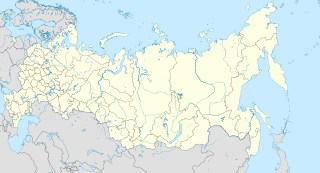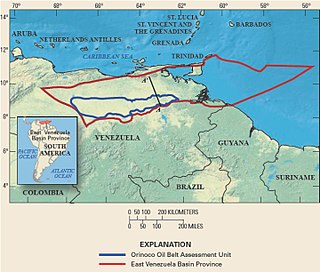This article needs additional citations for verification .(October 2009) (Learn how and when to remove this template message) |
| Private, subsidiary of Rosneft | |
| Industry | Oil and gas industry |
| Founded | 1964 |
| Headquarters | Nefteyugansk , Russia |
Key people | Hasan Kurisheivich Tatriev |
| Products | Petroleum |
| Parent | Rosneft |
| Website | www |
Yuganskneftegaz (Russian : Юганскнефтегаз) is a wholly integrated subsidiary of Rosneft that owns and operates the second largest oil production complex in Russia. It was formerly the most important production subsidiary of Yukos, but was expropriated by the Russian government and given to Rosneft, a state-owned company.

Russian is an East Slavic language, which is official in the Russian Federation, Belarus, Kazakhstan and Kyrgyzstan, as well as being widely used throughout Eastern Europe, the Baltic states, the Caucasus and Central Asia. It was the de facto language of the Soviet Union until its dissolution on 25 December 1991. Although, nowadays, nearly three decades after the breakup of the Soviet Union, Russian is used in official capacity or in public life in all the post-Soviet nation-states, as well as in Israel and Mongolia, the rise of state-specific varieties of this language tends to be strongly denied in Russia, in line with the Russian World ideology.

PJSC Rosneft Oil Company is a Russian integrated energy company headquartered in the Russian capital of Moscow. It is specializing on exploration, extraction, production, refinement, transport, and sale of petroleum, natural gas, and petroleum products. The company is controlled by the Russian government through the Rosneftegaz holding company. Its name is a portmanteau of the Russian words Rossiyskaya neft'.

OJSC "Yukos Oil Company" was an oil and gas company based in Moscow, Russia. Yukos was acquired from the Russian government by Russian oligarch Mikhail Khodorkovsky's Bank Menatep during the controversial "loans for shares" auctions of the mid 1990s. Between 1996 and 2003 Yukos became one of the biggest and most successful Russian companies, producing 20% of Russia's oil output. In October 2003, Khodorkovsky—by then the richest man in Russia and 16th richest man in the world—was arrested, and the company was forcibly broken up for alleged unpaid taxes shortly after and declared bankrupt in August 2006. Courts in several countries later ruled that the real intent was to destroy Yukos and obtain its assets for the government, and act politically against Khodorkovsky. In 2014 the largest arbitration award in history, $50 billion, was won by Yukos' former owners against Russia.. However this $50 billion award by the Permanent Court of Arbitration has been thrown out by the local court in The Hague as invalid.










